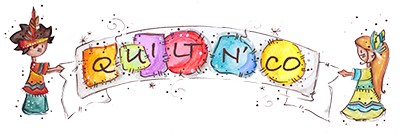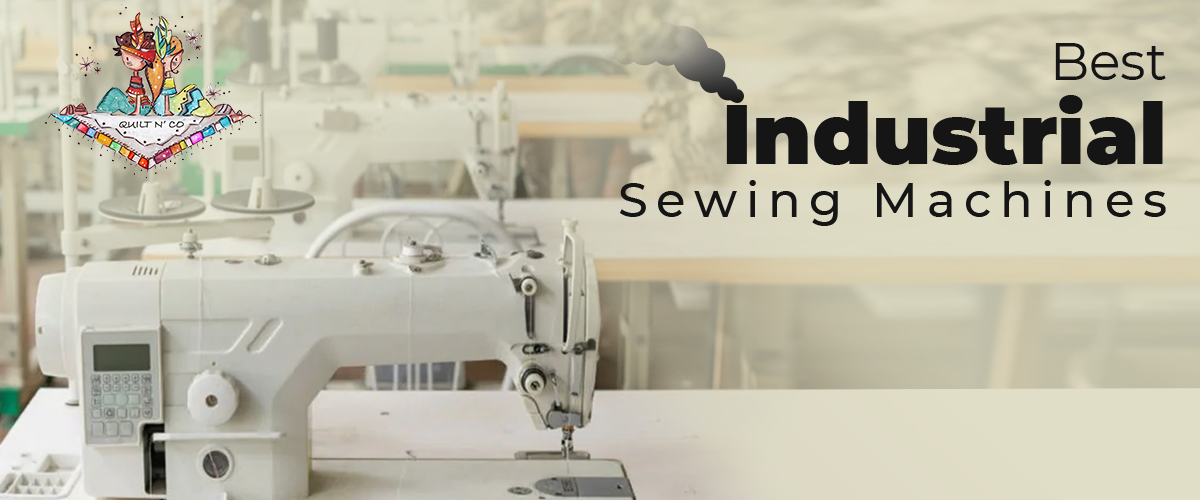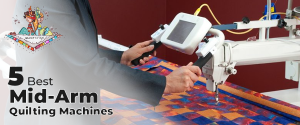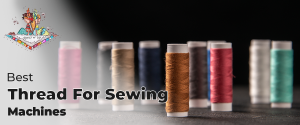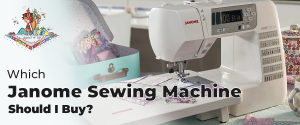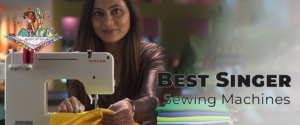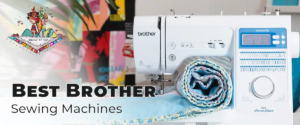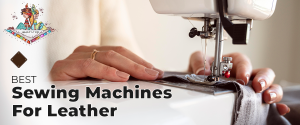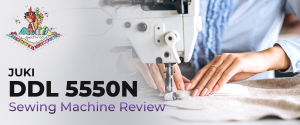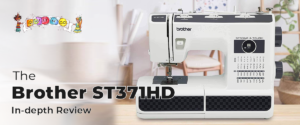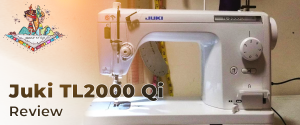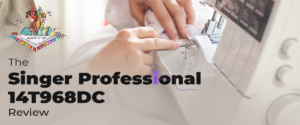


Industrial sewing machines are a significant investment. If you need one, it most likely means you’re taking your sewing seriously. Choosing one is time-consuming and challenging. With the steep price tag and limited information online, you can spend days comparing models online. 🤔
Don’t spend any more time looking for the best industrial sewing machine. In this post, I’ll review the best industrial sewing machines for every situation. Let’s dive in! 🙂
1. JANOME 1600P-QC
It has a metal frame and comes with a wide range of accessories, making it a versatile machine that can tackle just about any sewing project you throw at it.
It also has a built-in needle threader and a top-loading bobbin, which makes changing threads a breeze.
If you are looking for a high-quality sewing machine that can handle just about anything, the Janome 1600P-QC is a great option.. Read my full review of the Janome 1600P-QC.
2. Juki DDL-8700
For starters, the machine is built to handle heavy-duty sewing projects, such as upholstery, leather, and denim. It also has a powerful motor that can sew through multiple layers of fabric quickly and easily.
In addition, the DDL-8700 comes with a variety of stitch patterns and a built-in needle threader, making it easy to customize your projects.
Finally, the machine is backed by Juki’s reputation for quality and durability, making it a wise investment for your business.
3. SINGER 4423 Heavy-Duty
It is a fantastic sewing machine for anyone who wants a durable and reliable machine that can handle a variety of fabrics. It’s easy to use, has a variety of built-in stitches, and comes with a number of accessories that make sewing a breeze.
If you’re looking for a heavy-duty sewing machine that won’t break the bank, the Singer Heavy Duty 4423 is the perfect choice. Read my full review of the SINGER 4423 Heavy-Duty.
Buyers’ Guide
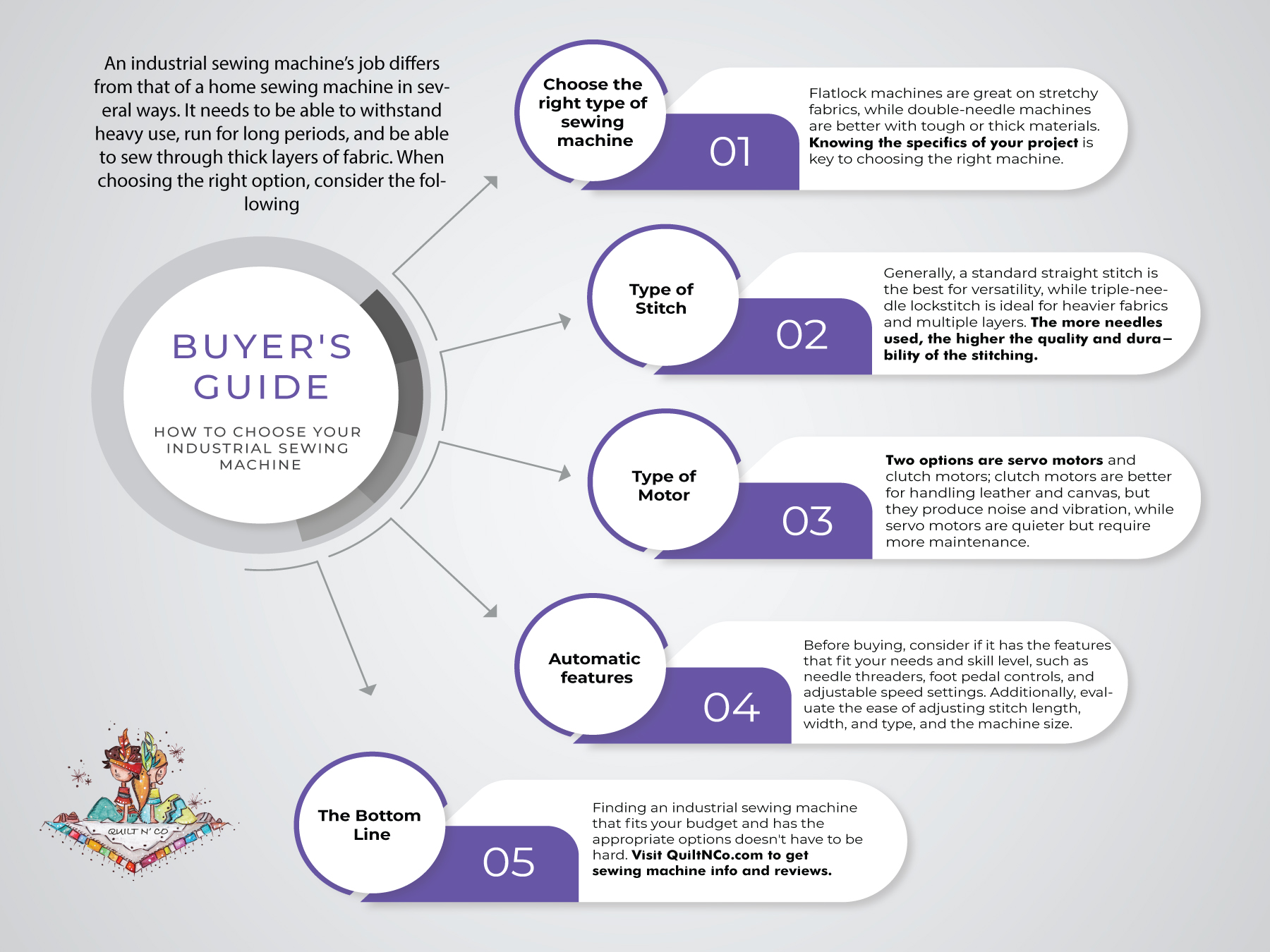
You’ll find different industrial sewing machines on the market, including single-needle lockstitch, zigzag, flatlock, button attaching, overlock, feed off the arm, buttonhole, and double-needle lock stitch. The key difference between these models is what they do well and what they don’t.
Flatlock sewing machines are popular because they’re great at sewing stretchy materials but not very good with tough or thick fabrics. Double-needle lockstitch works best on heavy materials because it is much stronger than a standard zigzag stitch. Make sure you know what your project will entail to get the best machine for your situation.
The most common industrial sewing machine stitch types are zigzag, chain stitch, triple-needle lockstitch, flatlock stitch, and overlock stitch.
Generally speaking, if you want a versatile workhorse that can handle almost any material or project, then you should go with a standard straight stitch. If you plan on sewing up thick layers of heavy fabrics or multiple layers of lighter materials, then look for a triple-needle lockstitch.
The type of stitch affects how many needles are used and what the stitches look like. The rule of thumb is that the more needles you have, the better quality and durability of the stitching will be.
Industrial sewing machines should have a sturdy motor that is capable of handling heavy-duty tasks. There are two kinds of motor you may consider, including servo motor and clutch:
- If the tasks you want to handle deal with leather and canvas, the clutch motor would be the right option. However, this motor produces sound and vibration, which means people nearby might notice.
- Servo motors produce less noise but are not as powerful as clutch motors. They also require periodic maintenance to keep them running smoothly.
Many industrial sewing machines have several automatic features that make them stand out. Some will include built-in needle threaders and even foot pedal controls. Before making a purchase, you should take a close look at these additional features to ensure they fit your needs and skill level.
Here are questions you should ask to help you choose:
- Do you need something simple to operate?
- Will the speed settings meet your demands?
- Is there a low-speed setting for slower projects and a high-speed setting for fast ones?
- Does it have enough room for all the features you need?
- How easy is it to adjust the tension and set stitch length, width, and type?
- Take all these factors into consideration when shopping around.
Choosing the best industrial sewing machine for the job doesn’t have to be difficult. Find one that has the appropriate options and fits your budget, and you’ll be ready to go.
For the best results, always follow manufacturer instructions when operating any new piece of machinery.
Frequently Asked Questions
There is no one “best” industrial sewing machine brand. Different brands offer different features and benefits that might make them a good choice for a particular person or business. Some of the factors that you might want to consider when choosing an industrial sewing machine brand include the type of sewing you’ll be doing, the frequency of use, the budget, and any special features or capabilities that you might need.
Conclusion
In this article, we have reviewed the best industrial sewing machines. This post should help alleviate some difficulties when trying to choose an industrial sewing machine.
Now go out there and take your sewing to the next level.
